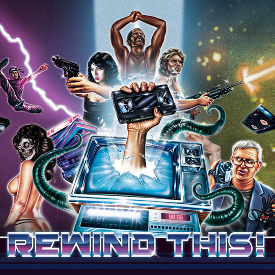
OBIR: Occasional Biased and Ignorant Reviews reflecting this reader’s opinion.

The Mermaid’s Tale – by D.G. Valdron
Publisher: 2nd edition, Fossil Cove Press, Winnipeg, Manitoba, Canada, 2023.
1st Edition: Five Rivers Publishing, Neustadt, Ontario, Canada,2016.
Cover Art – by Jeff Minkevics
Premise:
A sweet, innocent Mermaid has been brutally murdered. Naturally, the Elders hire an Orc to catch the killer.
Review:
Stalin’s Secret Police Chief Beria, once said “Everybody is guilty of something.”
Hitler’s propaganda Minister Joseph Goebbels said to filmmaker Fritz Lang, “I decide who is Jewish.”
In both cases, illustrating how absolutist regimes do not respect ‘Law” as anything other than a tool for the elimination of real or imagined enemies. Those who anticipate the “Law” protecting their rights are in for a rude shock.
An example of a real-life shenanigan pulled by an absolutist regime is Soviet “Law” under Stalin. It was illegal to execute a Soviet citizen. Yet Stalin was responsible for more Soviet deaths than Hitler. How was this possible? Dead simple. If you were arrested for a political crime you were assumed to be guilty. Since you were guilty of a political crime, you were a traitor. And traitors automatically forfeit their right to Soviet citizenship. Ergo, the State was perfectly within its rights to execute you or work you to death.
Lesson to be learned? Don’t live according to your definition of the legal system. Pay attention to how the powers that be actually enforce the law. That is what is important.
So, am I suggesting paranoia is healthy? Useful? Life saving?
Yes, yes, yes… and no. In many countries justice is a sort of jousting system, at least from a lawyer’s point of view. In a sense, all of us be lawyers. Every day we make judgements according to our understanding. What to say. What not to say. How to react. And paranoia, not to say lynch mob mentality, is never far away.
Frequently, I observe citizens in online community bulleting boards commenting on local crimes. Some talk about helping the poor and mentally handicapped. Some talk about helping the police help us. And some talk about taking the homeless and drug addicted into the woods or out to sea and disposing of them. Are they joking? Not often. Would they ever do it? I like to think not. But I’m sure the police are monitoring these community boards just in case.
After all, I knew a Vancouver poet whose wife went missing. I knew someone in his poetry workshop. Sure enough, he contributed a poem about a dead woman in the reeds at the edge of a lake. About a month later the police found his wife’s body in a location exactly as the poet described it. So, you never know.
What am I getting at? William Gibson has always maintained that the best Science fiction is about the contemporary world, even if set in the future. It is always about extrapolating the consequences of current trends to make us more aware of what we are getting ourselves into. I assume this also applies to fantasy.
This novel, without a doubt, depicts a fantasy world. It is full of Mermaids, Selkies, Vampires, Orcs, Trolls, Dwarves, Goblins, Hobgoblins, Giants and other fairy tale beasties plus, in a somewhat minor role, mere humans. To anyone accustomed to Dungeons & Dragons, or The Lord of the Rings, familiar territory. One hopes for originality but will settle for exciting adventure livened with wit and humour. A rollicking good time, unless too unoriginal to captivate and consequently just a mess of cliches. No need to worry about that. This novel is highly original, almost unbearably so.
Yes, it’s a fantasy novel, but, equally without a doubt, it is a metaphor for the role of violence and criminality in modern society. As such, it is often brutally violent, and brutally uncaring. Both, speaking as a twentieth-century guy, seemingly trends on the upsurge, maybe not in percentages, but in acceptance as the “normal” background of life today.
The opening scenes involve an Orc being taken to the Mermaid’s body and being invited to examine it. I was immediately put in mind of the cop reality-show The First 48, its gimmick being that if they can solve a murder in the first 48 hours their chances of solving it are doubled. Meaning what? Only 50% of the remaining cases are ever solved?
I can’t help but notice most of their solutions are provided, not by evidence, but by witnesses coming forward. I suspect their unsolved cases are largely due to a lack of witnesses. But I digress.
Thing is, the show purports to be a reality show. And it is. But the full horror of the crimes is never shown. They show the bodies. They show pools of blood. But never the expressions on the victim’s faces. Never the horrific wounds. The “drama” in the show is based on footage of cops convincing suspects to confess. After all, the viewer is outraged by the crime, and is rooting for a confession, for justice to be served, for the relatives to receive a measure of closure, and so on. It’s a morality play, to be sure. Besides, nobody deserves to be murdered. All victims deserve to be remembered. They were human beings. Humanity deserves better than what humans do to each other. All this goes without saying.
The show may or may not reinforce your faith in justice. Everything has been edited. Scenes of the accused may or may not reflect their actual demeanor overall. Occasionally one gets the impression people are sorry for what they did. Maybe. Maybe they’re just sorry they got caught. Then again, some appear carefree, totally unfazed, even amused by their crime.
Bravado? Narcissism? Incapable of empathy? A monster in thought and deed? I know people who prefer not to believe in such. I suppose it makes life feel safer.
My point is that reality, be it criminal violence or war, is far worse than portrayed in films and TV shows. Further, I would argue that if you are genuinely concerned about conjuring up a world worth living in, you need to understand genuine reality as opposed to the filtered and censored versions of reality so increasingly popular in modern times.
The Mermaid’s Tale is a brutally honest look at routine violence and lack of empathy, things which are very much part of the human condition though, fortunately, not the dominant traits in the majority of human beings, or so I like to think. Nevertheless, the novel is a kind of “Idiot’s Guide to Personality Traits to Watch Out for.” In essence, its main theme is that people exist who are capable of killing you for no reason whatsoever. Alas, circumstances may increase your chance of meeting them. Situational awareness is something to maintain at all times. Don’t rely on the milk of human kindness to protect you. Reality often turns out to be an ambush predator. Beware! Be aware!
The Orc, who is female, has no name. No Orc does. They’re considered unthinking brutes, too stupid to deserve a name. But they’re tough, very strong, incredibly vicious, and unpredictably violent. Everybody and everything despise Orcs, but not to their face. Orcs make poor friends, lousy neighbours, and terrifying lovers. You don’t want to know an Orc.
So why an Orc to solve a crime? They work cheap, they’re single-minded, stubborn, ruthless, and above all, love humiliating their betters. And this particular Orc is known to think through problems before going berserk and ripping the source of the problem to shreds. Perfect critter for the task. She’s an intellectual, by Orc standards.
Still, she’s an Orc. First thought on seeing the beautiful but pathetically ravaged body of the Mermaid? “What a waste of meat.”
And practical. She sticks her fingers in every wound and smells her fingers. Thus, she can determine the size of the knife, that it was made of iron (rare in this world), was greased for easy withdrawal and, oh yes, that the killer had its way with her while killing her. All details that generally come out in autopsy reports. This is simply a more graphic and vivid way for the author to illustrate just how evil the nature of this crime actually is. A work of fiction, yes, but standing in for real-world crimes. Horror is horror.
Next, the Orc goes off to interview the victim’s Mermaid friends. They are silly, scatter-brained creatures, beautiful in the extreme and obsessed with sex. Not unintelligent, mind you, but unable to follow a line of thought for more than two or three sentences before switching to a totally unrelated topic. Makes me wonder. Are Mermaids able to smoke pot under the waves? Inquiring minds want to know.
There is humour here. For example, the last Merman who saw the victim alive refuses to talk until the Orc shows him her breasts. In The First 48 the most the Detectives are willing to do is bring the suspects a coffee or a can of Coke. But the Orc doesn’t hesitate to flash a breast. It’s no big deal. After all, unlike most creatures who ask for such a boon, the Merman doesn’t have a death wish. It’s just curious. So, why not?
The Orc returns to its quarters in a stronghold owned by Trolls. Many Orcs live there, having been hired as mercenaries. It sees two Orcs carving up a young Orc for dinner. Just reminds the She-Orc how hungry she is. Then she sees three large male Orcs raping a small female Orc. Everyone else is watching, so “our” Orc stops to watch, too. In her opinion the whole scene is marginally less than boring.
Rape over, victim miraculously still alive, the She-Orc turns to getting food. But the victim starts howling with rage and frustration and grief and, of course, pain. So, the Detective Orc goes over and kicks the crap out of her, reducing her to silence. Doesn’t want to be distracted by excess noise while eating.
The three rapist Orcs start laughing. Bad mistake. They lose. The victim is grateful, mainly because it recognises the She-Orc is more powerful then most and therefore the ideal Master, but She-Orc doesn’t need a slave, at least for the time being, and drives her away. In Orc terms, typical social interaction. It becomes an ongoing contest of wills.
It’s hard for the reader to identify with this Orc. Empathy is not her strongpoint. But that’s the main point of the novel. Reality doesn’t care about personal tragedy. It really doesn’t. It’s just part of reality. It is what it is. We tend to indulge in denial, or wishful thinking, or convoluted rationalization, but to what end? Reality has already forgotten. It never knew in the first place. It has no brain, no thoughts, no emotion. Only we humans try to make sense of it all.
I’m sure you now realise this isn’t your standard fantasy adventure. In fact it is a fantasy horror novel. One which utilizes the trappings of your average fantasy novel to describe the horror of the real world in vivid and unforgettable detail.
It’s not the violence as such which stirs the emotions of the reader. Violence can be made to seem exciting, or humorous, depending on the treatment. Indiana Jones pulling out a pistol and shooting his sword-wielding opponent is the punchline of a joke. In real life, the act wouldn’t produce quite the same boffo guffaws.
It is the uncaring nature of the people/thingies/beasties involved in contrast to the suffering of the victim which brings out the “Greek tragedy” aspect of the event, the horrible inevitability, the sheer unfairness of it all, that stirs the reader’s emotions, traditionally to the point of catharsis. Otherwise, tragedy serves no purpose. The Mermaid’s Tale is ongoing tragedy, and its purpose grim and powerful. It should be read for that reason. It may quite possibly help you cope with the worst that fate will throw at you.
At the same time, there is humour present to lighten the mood, albeit in a dark comic manner the likes of which I haven’t seen since I first read Gargantua and Pantagruel by Rabelais more than half a century ago.
Consider the following scene. The She-Orc briefly has a Vampire as a riding companion while travelling cross country on horseback. Vampires, it turns out, are exasperating fantasists at the best of times. Seeking to make a point about destiny and what not, the Vampire describes a conversation it had with a turd it had defecated. From the turd’s point of view, it had just been born, and was grateful to its creator. It wanted to know if it should worship the Vampire or not. Hence a deeply serious theological discussion between the Vampire and its turd. If that didn’t result in Rabelais convulsing in his grave with laughter, I don’t know what would. It’s a literary tour de force.
At one point there’s a description of how this world came to be. Nothing less than a creation myth. At the very least it is a parody of all creation myths. It is also deeply disgusting in the style of Rabelais. Medieval peasants would have howled with laughter. Priests, or scholars, not so much. It calls into question whether we attach too much importance to creation myths. They are myths, after all.
But then, creation myths are about the birthing of entire worlds, and birth, though a natural and wondrous process, is just a tad messy in some people’s eyes. I remember watching a reality show about ambulance crews in Birmingham, England, or some such city, and seeing a woman medic stating she’d rather deal with accident victims than a woman giving birth because she found it so gross she had to grit her teeth to help out. Still, kudos to her for always doing her job despite her personal revulsion. Everyone’s different. At least the expectant mothers could count on her aid.
Life often is gross, and cruel, and ruthless, but… so what? The purpose of life is to live. Enjoy what you can while you can. As for the parts you don’t enjoy… don’t deny them or ignore them. It’s best to understand them and put them in their proper place, to view them with the perspective necessary to survival. Death, taxes… all inevitable. Doesn’t mean you have to plan your life accordingly. A little bit, for practical reasons, sure, but concentrate on the good stuff. You’d be crazy not to.
So why read The Mermaid’s Tale? It is not meant to be mindless entertainment. It is a darkly intelligent look at things we’d rather not think about. It deals with the madness in all of us and poses many questions, if only subliminally. In that sense I’d compare it to Herman Melville’s Moby-Dick. There’s a little Ahab in all of us, at least potentially. How do we cope with ourselves? With others? With life? That’s what this book is all about. A damn serious fantasy if you ask me.
Yet, rest assured the plot thickens as remorselessly as blood congeals. Many a fascinating character becomes even more peculiar. And just about every character worries about being a victim as war approaches. Fear reigns supreme, and with good reason. Yet the She-Orc pursues her single-minded goal. You may not like her, but you wind up rooting for her. Turns out, you identify with her quest, if nothing else.
CONCLUSION:
A powerful novel. Too strong for some, but highly original and, I believe, quite unique, at least in my reading experience. Call it an unrestrained, no-holds-barred examination of the worst human society has to offer, albeit in the form of a fantasy world. Though imaginative in presentation, I would describe this as an outpouring of frustrations and questions raised by a lifetime of experience in the darker realms of human interaction. I won’t state Valdron’s profession. I don’t know that he would want me to. But you can take for granted he knows whereof he speaks.
D.G. Valdron is an excellent writer with a superb eye for telling detail. If you are looking for a demanding, difficult novel that forces you to think, yet is clearly and precisely written and features many extraordinary and off-beat original touches that take your breath away, this is the book for you. It is not escapist. This novel grinds your face in reality. It is not what most would call entertaining, but a thought-provoking and intelligent essay on the meaning of life way beyond the limitations of most fiction.
The Mermaid’s Tale, as I reviewed it, may not sound like something you want to pick up. But if you do read it, you will be rewarded… with new thoughts, ideas and perceptions that never occurred to you before. It’s that revolutionary. Are you up to the challenge? You won’t regret it. A darkly, deeply impressive book.
Buy it at: < The Mermaid’s Tale >











Recent Comments